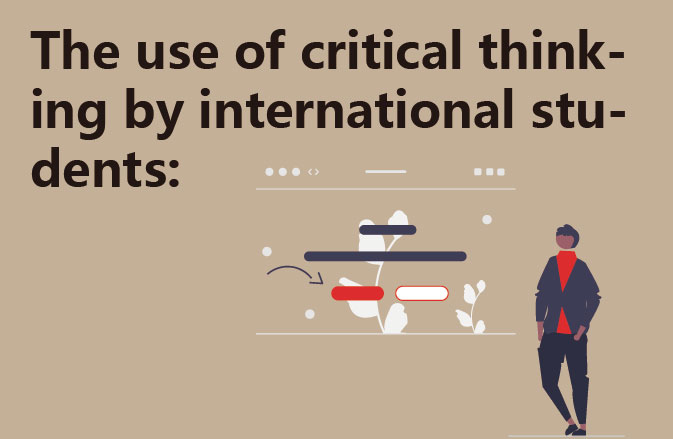I. What is Critical Thinking (CT)?
CT refers to the ability to perceive and interpret the key elements of a large amount of information and the process of thinking critically, and to analyse, evaluate, and interpret appropriately in order to justify arguments and arrive at valid and sensible conclusions.
How can critical thinking (CT) be fully utilised in an essay?
First, critically evaluate the sources of information. At the dissertation writing stage, it is especially critical to accurately screen and evaluate information sources; make sure that you cite information from credible, authoritative, and rigorously vetted sources. The CT role should be fulfilled by reviewing and testing the information for accuracy, reliability and usefulness.
Second, systematically analyse and interpret the evidence base; the core of CT is to analyse and parse the evidence in depth. It is not just about listing relevant research findings and opinions, but also about assessing and analysing them. At the same time, it is necessary to pay attention to the relevance, logic, and coherence of the evidence, so as to provide personal insights and analyses.
Of particular interest is the process of constructing a strong discourse, which emphasises the ability to design and optimise a discursive framework, i.e. to use appropriate evidence and logical chains to support one’s views. In doing so, we need to compare and contrast ideas and evidence, and make sound and persuasive arguments.
In addition, maintaining an open spirit of scepticism is one of the essentials of CT. Instead of blindly following or accepting ideas at face value, we should actively ask questions, raise doubts, and engage in in-depth thinking and analysis.
Finally, grasp the whole picture and discuss fully from multiple angles and perspectives. When describing an issue, one should break away from the constraints of a single perspective and endeavour to expand new fields and perspectives, so as to analyse the issue in a comprehensive and balanced way and demonstrate the results of comprehensive research.
All in all, CT focuses on the logic and rationality of thinking. Therefore, in the process of writing a thesis, we should ensure that the process of exposition is clear and logically complete, and that it is mutually compatible with the theme and ultimate goal of the whole essay.
Further, critical reading and editing are equally important. The quality of the paper will be significantly improved if we are aware of CT when reading others’ work or self-examining, assessing the truthfulness and logic of the information, and making improvements when appropriate.




